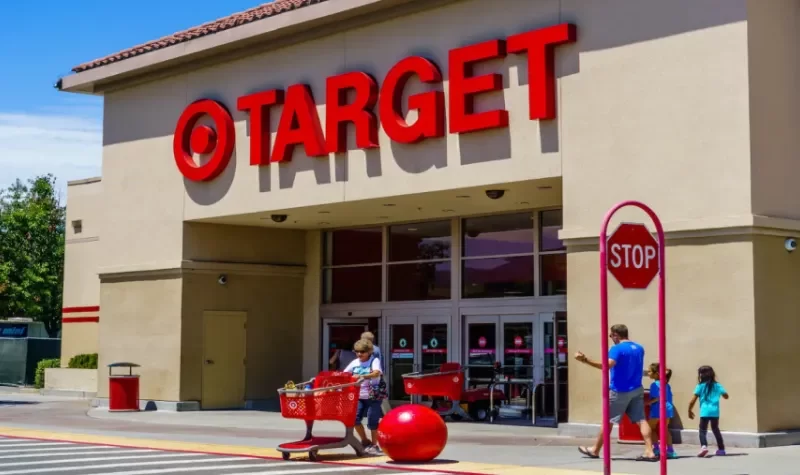Employers use a variety of interviewing techniques to find the best applicant for a position. The traditional sit-down interview might be one of them, or it might be something that resembles a typical workday. As a candidate, it’s crucial to understand the type of interview you accept so that you can adequately prepare.
For example, what is a working interview?
In short, a working interview is the time for a job candidate to show an employer what she can do. This frequently entails having the job candidate perform the tasks she would typically perform at her regular job.
In this article, we’ll define a working interview, go over some of the format’s advantages, offer some advice, and look at some alternative interviewing techniques.
Here’s the scoop.
Table of Contents
What Is A Working Interview Exactly?
A practical method of interviewing is called a working interview. Employers give potential employees a task or project to complete in order to assess how well they would perform in the position. Candidates, on the other hand, have the opportunity to try out the position.
Compared to behavioral-based or informational interviews, working interviews are very different. Candidate work is given in place of a string of interview questions. When done correctly, it’s a useful method for determining whether or not the position is a good fit for both parties.
Working Interview Process
A working interview should have an interview component, but the working component will be the main focus. It’s entirely up to you how long the working interview should last—it could be a few hours or a whole day. The candidate will be performing, at least in part, the duties of the position they are interviewing for during that time. The right people will be monitoring and assessing this procedure. The ideal situation for a job applicant is to be collaborating with the group they intend to join.
Working interviews don’t involve plunging the candidate into the water and hoping they can swim. When necessary, you’ll offer assistance and respond to their queries. Instead of being a trial by fire, it should be a cordial and educational process. Remember, to observe the following rules during the interview:
- the creation of a secure and encouraging environment.
- Follow HIPAA rules.
- Respect statutory requirements, such as prohibitions against harassment and discrimination.
- Maintain liability and worker’s compensation insurance.
- Identify whether the worker is authorized to work in the US.
- Get the applicant to sign a non-disclosure agreement.
- Along with the I-9 and W-4 paperwork, keep a record of any licenses or certifications that the employee needs to perform the duties they are performing in your office.
Important: Whether you choose to hire the applicant or not, you must compensate them for their time spent participating in the working interview. If you don’t, you risk facing wage-unpaid employment claims. Also keep in mind that the procedure ought to let the applicant decide whether or not they want to work for your business. The working interview is designed to be advantageous to both parties.
What To Expect During A Working Interview
Every company has a unique approach to interviews. It is crucial to ask questions during working interviews because the same is true.
If you’re the hiring manager organizing a working interview, ask your recruiting team for information on the company’s policies regarding time commitment and compensation. Be careful not to share confidential information, as well as any other data that is privileged or competitive.
These four things are what you can anticipate if you’ve been invited to a working interview.
- Real work will be required of you. Some potential employers will assign you a specific project. You might be asked to use your skills to support a teammate’s project or another workstream. The goal of a working interview is to demonstrate your work, regardless.
- The technical skill test might be required of you. You might be required to take a skills test, depending on the position you’re interviewing for. You might be asked to write some code, for instance, if you’re a software engineer. It’s possible that you’ll be asked to assess or enhance someone else’s code. Alternatively, if you’re a writer, you might be asked to draft some copy or a blog.
- You could be remote or on-site. The workplace of today is hybrid. Many businesses use a hybrid work model or continue to conduct all of their business remotely. However, if you’ve been asked to a working interview, be sure to ask specific questions about the scheduled time. It’s possible that an entire workday would be required of you.
- It’s likely that you’ll be questioned about your work. If a company is only interested in the output, they typically won’t conduct a working interview. Prepare yourself to talk with a hiring manager and potential team members about what you did, why you did it, and what else you might try.
They can learn how you approach the work, whether you can take feedback into account, and whether you can think of alternative strategies. - Work may earn you money. An employer should pay you if they ask you to participate in a working interview. Ask about pay and compensation for the job, and make it clear that it is unrelated to how far along you are in the process.
Employers may choose to pay employees hourly or flat rates. In any case, be sure to inquire about compensation. You’ll need to decide whether or not you want to pursue the opportunity if they don’t offer compensation.*
In order to find talent at BetterUp, we conduct some working interviews. For instance, our marketing department collaborates with a small number of independent contractors. We pay brand-new freelancers when we find them. We never “test out” a freelance writer on an unpaid basis. We treat it as a working interview rather than a take-home test or project because we ask them to perform real work that we intend to use.
I’ve taken part in interviews where employers required the applicant to complete a project or assessment at home. A working interview is distinct from this. This project is being used purely as a test (and won’t be leveraged or used by the company).
Ask for clarification if you need help determining what the company is expecting of you. Is this a take-home test or a working interview? In the latter case, the employer must be very clear about how much time the applicant should devote to it.
I participated in a take-home project during my job search. It wasn’t a particularly challenging project, but the company told me to spend no more than two hours on it. It contained sample content that wouldn’t be used to add value for the business and was entirely made up. See more about What Is An Open Interview?

Advantages Of Working Interviews
Both employers and candidates can benefit from working interviews for the following reasons:
Provides Proof Of Your Abilities
A working interview is different from a traditional interview because the candidate exhibits their fundamental skills and abilities instead of answering theoretical questions from the employer. Working interviews are ideal for qualified candidates who can handle technical tasks. This interview technique may be advantageous to you if you are self-assured in your abilities and capable of handling pressure.
Employers can more accurately assess a candidate’s suitability for a job by watching them perform pertinent tasks during working interviews. This interviewing strategy also lessens the possibility that an employer will choose a candidate simply because they are skilled at interviewing. Rather, it provides a more accurate representation of how they might perform if employed.
Allows A Candidate To Try Out The Job
Before signing a contract and fully committing to work for the employer, candidates can try out a job during working interviews. Despite the fact that you can always read a job description, the work you actually do may differ greatly from what is described. You might finish tasks about which you had no prior knowledge and discover that you like them. Working interviews also give you a sense of what it’s like to work for this company because you can see how they manage and what tasks they assign, which can help you decide if it’s the best option for you.
Teaches About A Company’s Culture
You can gain more insight into a company’s culture during working interviews before deciding to apply for a position there. If a prospective employer assigns you a task to complete at the workplace, take note of how the business functions and your potential coworkers. Some indications of a good company culture that you may look out for include:
- employees who have worked there for a long time
- friendly interactions amongst coworkers
- diversity of staff
- management are actively involved and assisting their team
- a comfortable working environment
Keep an eye out for these promising signs and ask yourself if you could see yourself working there.
Shortens The Interview Time
Working interviews can cut the time it takes to conduct job interviews significantly. This time difference results from the fact that an employer can assign multiple candidates to tasks at once rather than meeting with each one one-on-one. Because an unlimited number of candidates can edit their assigned articles simultaneously, using this method of interviewing to find a new junior editor can drastically cut down on the primary interview time.
Employing businesses may also benefit from working interviews since they can watch applicants at work. Employers can compare them while they are working side by side and determine who seems to be the most qualified applicant for the position. To compare candidates’ skills, they could all edit the same article, for instance.
Drawbacks Of Working Interviews
A working interview has disadvantages in addition to its many advantages. Here are three drawbacks of a working interview:
- It requires a lot of time. An investment is a working interview. Each party involved needs a lot of time to complete the process. It could involve a lot of preparation just in itself.
- Scheduling can be time-consuming, so you run the risk of losing top talent. Scheduling a full work day could significantly slow down the interview process, especially in a competitive candidate market. This could mean that you run the risk of completely losing out on talent, especially given that job candidates frequently attend multiple interviews and receive numerous offers.
- With payroll and legal, there may be a lot of work. The interviewer will probably have to complete the required paperwork in order to be paid. Identify the ideal working interview process setup with the help of your HR and legal teams to ensure that all of your requirements are met.
- It does not always imply greater impartiality or fairness. A hiring manager might not be aware of the ways in which the context and working interview setup favor some candidates over others.
For instance, a working interview that lasts the entire day on-site may weed out parents with jobs that require more flexible scheduling. A candidate may be affected by the team’s homogeneity, even if it’s only on the surface, and may not perform as well as they might if they had more time to establish a level of comfort and trust with their coworkers.
Be thoughtful and intentional when extending invitations, keeping the time commitment reasonable, and ensuring that a variety of candidates can participate.
Alternatives To Working Interviews
Although working interviews are a great tool for employers, they might also use other interview techniques to evaluate your skills. Get to know these alternatives to working interviews:
Panel Interview
Panel interviews are sometimes used by businesses to select the best candidates. A candidate may be questioned by a panel of company representatives, such as management and human resources, during the interview process. There is frequently only one primary interviewer, but if additional representatives have any questions, they may do so at any time. These interviews are advantageous for the hiring company because they allow for the participation of various people in the selection of the best applicant. Additionally, because they are conducted in groups rather than one-on-one, panel interviews are more time-efficient for candidates.
Working Through A Temp Agency
Some employers turn to temporary staffing companies for assistance in finding and hiring qualified workers. In essence, as long as you carry out the employer’s requests for the specified number of days, you might be regarded as an employee of the temp agency. By the end of your temporary employment, the company that hired the temp agency may be able to offer you a full-time position through their organization rather than the temp agency. This approach is frequently used by businesses that want to conduct lots of working interviews so they can avoid having to develop employer-employee relationships with their candidates.
Skills Testing
A skills test is a condensed form of a working interview. A single task or a test may be all that the employer assigns you to complete, as opposed to a few hours or even a full day of work. They might ask you to edit a few paragraphs if you’re applying to be an editor, for instance. Employers typically reserve skills tests for promising candidates, so they usually combine this with a second traditional interview. Since a skills test usually only takes one to two hours to complete, you are rarely paid for them.
Working Interview Tips
Here are some tips to consider if you’re preparing for a working interview:
- Set clear expectations in advance. Ask about the work you might be doing and the pay you might be receiving before the interview even starts. For the work you complete during your interview, many employers will pay you either a flat rate or an hourly rate; however, if that is not the plan, you can choose whether you are comfortable with that.
- Research the company. You must find out some information about the company even though this isn’t a conventional interview. By doing your work in this manner, you can convey their values.
- Observe the little things. Reread the instructions to make sure you have covered every detail because you want to make an impression on the employer. Make the most of the time they give you to ensure that the job is done properly.
- Dress for success. It’s important to dress nicely even though it’s an interview, unless they specifically tell you otherwise. A safe choice is formal business attire that fits you well and is spotless and unwrinkled.
- Find your confidence. Remind yourself that the work your employer has given you is something you are capable of. So that the employer can see your confidence, try to stay upbeat and confident in your abilities.
- Ask smart questions. Make sure you have read the instructions carefully before asking the employer any questions. Ask for clarification if you’re still unclear about anything so you can complete the task effectively. Feel free to do so now; it is common practice for employees to do so while at work to ensure that tasks are correctly completed.
- Show your enthusiasm. Show that you can handle anything while maintaining a positive attitude, even if a task is difficult. Employers can see that you handle pressure well by your ability to remain composed during the interview.
- Make an impression that sticks. Working interviews give employers and their employees the chance to learn more about you while also giving you the chance to evaluate your work. If you’re only there for a few days, make an effort to introduce yourself and be cordial to everyone you come into contact with.
Conclusion
Even though you won’t be perfect in every area of the working interview, you can definitely prepare. Examine the job description in detail, ask questions during your initial interview to learn more about the duties you’ll be expected to perform, and then conduct research to review those skills.
The night before, get plenty of rest, and pack some snacks to prevent low blood sugar from the busy day. In addition to assessing your abilities, the employer will be looking for enthusiasm and a can-do attitude. Any knowledge or skill gaps that may come to light during the working interview can be overcome by demonstrating your optimism and openness to learning.
Many thanks for reading.



